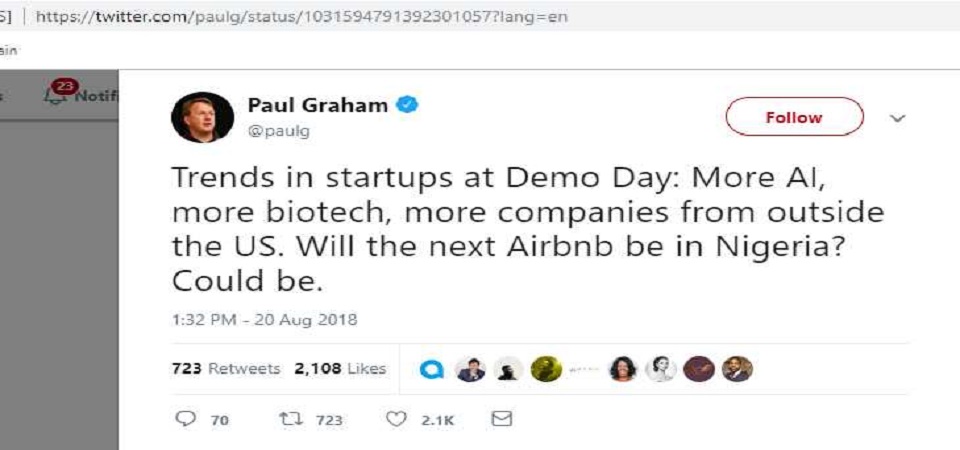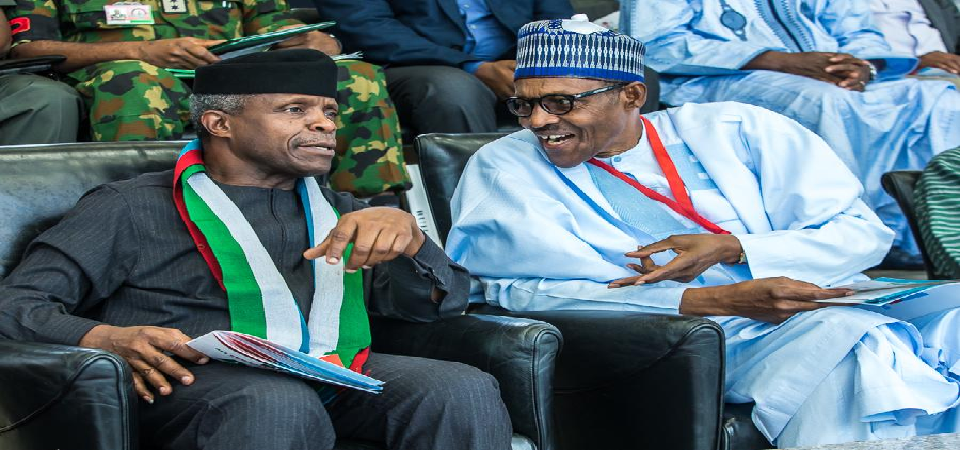
I wrote a piece on Paul Graham’s bold prediction on the Nigerian startup scene. Many responded on LinkedIn and noted largely that Nigeria must have electricity, great schools, etc before we could witness what Mr. Graham was predicting. I am not saying that we do not need those enabling environments. Yet, if you check human history, great private companies have typically preceded the strengthening of public institutions. Why? Governments use the taxes and fees on companies to build public institutions! In other words, you cannot expect good roads, great schools, etc if there are no companies with capacities to pay taxes to make such possible. The thinking that one has to wait, for everything to be perfect, before investing or building in Nigeria, is decoupled from how nations have developed.
While I believe in the potentials of Africa, especially Nigeria, I would caution against the celebration of hype as reality and hope as achievement. Especially when all the factors that perpetuated the creation, scale and success of Airbnb are absent in Nigeria. In four years, the only new $millionaires will be from Africa’s political class, unless some serious institutions for delivering good governance, politics, free market economy and civil interactions magically appear and become effectively implemented before 2022. Since there are no indications of such positive change happening overnight in Africa and or Nigeria, given that such processes take decades, I simply wouldn’t be banking on such $millionaire party. That’s not how Rome was built.
It’s all about a media hype, the reality on ground is that Africa still lies in the dark and Nigeria especially is backward in terms of ordinary electricity that is the source of innovation

So, if you expect Nigeria to be perfect with good infrastructure, top-grade schools, etc before you can invest or do anything in Nigeria, you would be out of luck. Vodafone had the same mindset when Nigeria wanted it desperately for mobile telephony. We continue to appreciate MTN for believing in Nigeria.
Across human histories, from UK to America, companies rise before nations can build strong institutions. In other words, if you expect Nigeria to have the best public institutions before great companies, you would keep waiting. Typically, what happens is that nations have great companies, and then use the taxes paid by those companies to build better public institutions.
Register for Tekedia Mini-MBA edition 19 (Feb 9 – May 2, 2026): big discounts for early bird.
Tekedia AI in Business Masterclass opens registrations.
Join Tekedia Capital Syndicate and co-invest in great global startups.
Register for Tekedia AI Lab: From Technical Design to Deployment (next edition begins Jan 24 2026).
My thesis is that Nigeria cannot have solid public institutions, from great schools to good public institutions, until Nigeria has created category-leading private companies that would provide resources to build those institutions. This was well discussed in one of my books which received IGI Global Book of the Year award.

Yet, the private companies need good public institutions to thrive. But there is no record that that public institutions must exist first. America was partially built on the wealth created by Rockefeller, Carnegie, Mellon, etc who generated enormous wealth for the commonwealth, and using the money the American government set up institutions. Yes, the tax from Standard Oil was used to build institutions to regulate the oil industry. Without the money from Standard Oil, government would not have the resourceful to do the needful in bringing competition in the American energy sector, by breaking the firm into pieces with incarnations of Exxon, Chevron, etc.
Standard Oil Co. Inc. was an American oil producing, transporting, refining, and marketing company. Established in 1870 by John D. Rockefeller and Henry Flagler as a corporation in Ohio, it was the largest oil refinery in the world of its time.
[…]
In 1911 The original Standard Oil Company corporate entity continues in existence and was the operating entity for Sohio; the Standard Oil Company was transformed into entities such as ESSO (phonetic spelling of SO), now Exxon; and SOcal, now Chevron
Nigeria Needs GREAT Private Companies First
That is what will happen – we cannot expect a poor public sector to do magic. It is only when the private sector has generated enormous wealth would we see governments begin to evolve in ways we want them. Interestingly, the private sector cannot exclusively wait for those public institutions to be in existence before they can move to fix the market frictions.
I hope things improve from the public sector. Yes, I do wish we can move faster in many things. But I am not the type that believes that things can only happen after government has fixed many things. Government needs money to do those things and having great companies can make them happen.

All Together
The structures of many government institutions are designed in ways that unless the private sector does well, the government institutions will not do well. From National Information Technology Development Agency (NITDA) to Industrial Training Fund (ITF), government has structured everything that unless the private sector does well, these institutions would not have resources to thrive.
That is what is happening across all government agencies and institutions – they are largely waiting for resources from the private sector to build them. The oil revenue is asymmetric, largely uncorrelated to the growth of the local economic organically, and offers nothing sustainable. You take the oil money to Umuahia, Sokoto, Osogbo etc and once it is finished, nothing happens. But if you have companies in those cities that could bring a quarter of the allocations coming from oil money via taxes, the local economies will be better over long-term.
In summary, if you just wait for Nigeria to be perfect before investing or starting a business, you would run out of time. Nigeria is really waiting for the private sector to fund whatever it wants in Nigerian public institutions. That has been the ways the world has developed – public institutions are funded by private companies. Most private companies would be pioneers in some categories and sectors. Before them, government had nothing to regulate those areas. But as they begin to operate, they would provide funding which government would then use to regulate, develop and improve them.
Practically, we have no aerospace tourism sector in Nigeria. But if we have 5 private companies in that sector, in weeks, government will establish an agency to support it. Interestingly, as those companies expand, they would fund the institution needed to keep them going by providing better standards and regulations to ensure they are nurtured. But where you want that aerospace tourism agency to emerge before the private sector, you may keep waiting for decades.
---
Connect via my
LinkedIn |
Facebook |
X |
TikTok |
Instagram |
YouTube



